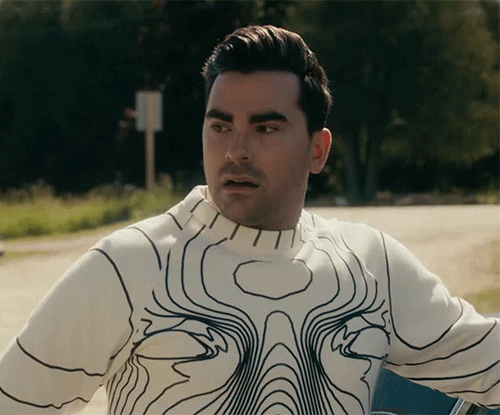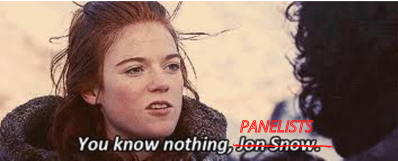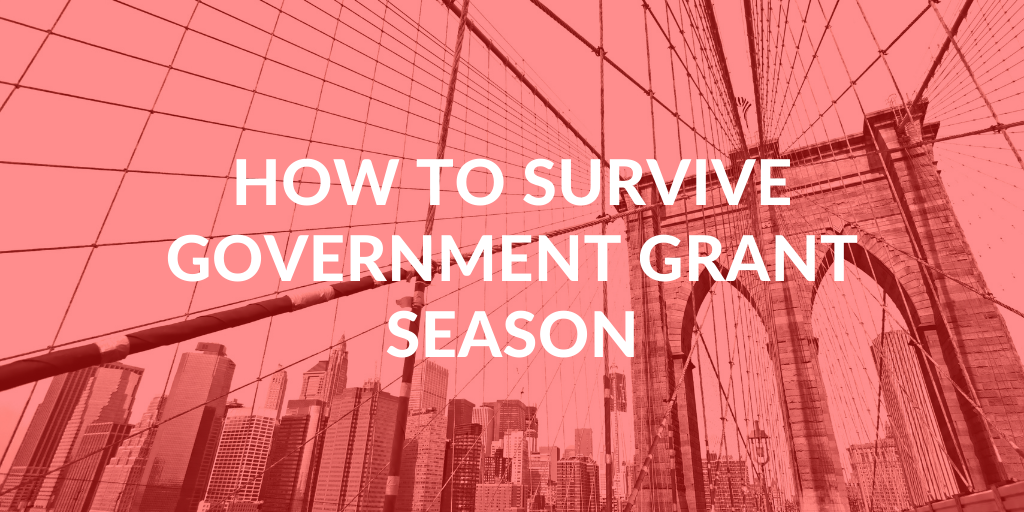While we’re all feeling festive and enjoying the holiday season, I’m here to remind you that the second-most wonderful time of year is right around the corner for those of you in New York City: Government Grant Season (GGS)!

But seriously, in this wild year, you would be forgiven if you forgot that the Department of Cultural Affairs, New York City Council, National Endowment for the Arts, and New York State Council on the Arts all typically have grants due in the first three months of the year. That’s not even counting the foundations who typically have due dates around this time, like the New York Community Trust, New Music USA, Children’s Theatre Foundation of America, and many more.
While you take some time to do a gratitude campaign this month, I hope you’re also setting aside some time to plan for the most chaotic grant writing time of the year. In this post, we’ll be outlining some tips and tricks to help make this process as smooth as possible.
Note: many cities also lump their government processes around the same time of year! For example, in Los Angeles, that period is from July through September, so bookmark this post to use when your GGS is coming!
MAKE A CALENDAR
I know this sounds simple, but I meet so many groups who wait for the funder to announce a grant deadline, and then as other priorities take over, end up panic-writing in the final week before submission.

First of all, we know when government funders typically release their deadlines. While I anticipate we will see some change this year, it’s better to plan for what we know and adapt, than to wait for more information and scramble to submit something on a shorter timeline.
Check out the websites linked above to find out last year’s deadlines, and make a plan based on that. For example, the NYC Department of Cultural Affairs’ due date is typically the second week of February, and the New York City Council’s is typically the third week. With the National Endowment for the Arts due around the end of February, we can begin to see how crazy this period can get!
That is why, when calendaring, plan to start writing now. We’ll talk about writing below, but many of these funders do not wildly change their format from year to year. That means that, if you applied last year, you can start working now on a template based off of what you submitted last year.
Map out due dates for drafts, editing by friends and team members, collection of supplementals, and budget creation starting NOW for those grants that don’t vary much (DCLA, City Council, NEA) that way, when there are inevitable changes and adjustments in the new year, you’re ahead of the game! Involve different team members or colleagues so the work is shared. Doing this on your own and need advising? Well, that’s what we’re here for!
DID I MENTION YOU SHOULD START WRITING NOW?
This is a strange year, and I fully anticipate there will be adjustments to the typical narrative questions that appear in these grants. That is no excuse to put off writing!
Let’s take the NYC DCLA as an example. The format has been largely unchanged, except for minor tweaks, for years. Narrative sections typically are about 3500 characters in length. This year, I anticipate they will ask us to discuss our plans around COVID, and our plans if we are able to gather in person again. We do not know whether they will ask you to explain this within the 3500 character narrative, OR in a new section.
Therefore, my team is writing now, and planning to write about 4,000-5,000 characters for each narrative section, and include both pandemic and post-pandemic plans for each program. When the DCLA releases their official guidelines, we will then adapt this work to fit the new format.

Too confusing? What I’m saying is this: Start writing now, and write more than you need. Don’t worry about editing for grammar or length until you get the official guidelines. At that point, editing is a much easier task to do on a short timeline than writing from scratch!
This year in particular, it’s important that you have language around your plans for the way programs must be during COVID, but also language for what you might do if the world begins to go back to normal. Showing thoughtful contingency planning will score you big points with the panels!
WAIT, PANELS? WHAT ARE PANELS?
Most of your government grants are selected by panels of citizens who read each grant based on the specific guidelines that the funder lays out; the same guidelines that you can read before you apply. This is why, when someone says to me “well, the DCLA doesn’t like us” I shake my head. While someone on that staff may have opinions about your work, they are required by the rules of their charter to avoid influencing the judgement of applications in any way. They are in the room to guide the panelists through the process, provide factual information, and be a resource to the applicants.
This is GREAT news for you! This means that, if you can clearly explain how your work fits the guidelines, you have as much of a chance of getting funded as anyone else. You must keep in mind, though, that not all of the panelists are experts in your field. Some are representatives of city council offices, others might be artists in a different field. Depending on the funder, the composition of the panel is different, so it’s best to assume that the reader knows nothing about what you do.

This can be hard for many creators to do, since you are living your work day to day. That’s why I also suggest that you…
FIND HELPERS FOR THESE GRANTS
Even as a one-person shop, you must find a way to get someone else’s help with your grants. The most important help you need is from a reader. This does not have to be somebody who has deep editing experience. It’s more important that they are not as involved in your work day-to-day as you are. This means that they can read the grant from the perspective of someone who’s never heard from you. GIve them your writing and the guidelines of the funder and ask them to read for clarity and give you any questions that come up for them. This will go a long way in ensuring that your writing will be correctly read by a panel.
If you have the personnel, it’s also a good idea to involve them in writing, compiling supplementals, creating budgets, and data entry. The whole team at Benvenuti Arts is involved in GGS. As noted above, we are starting this work NOW. This coming month, we’ll be writing the initial narrative texts; beginning to compile those supplementals that we know will be needed like 990 tax documents, work samples, board lists, and more; creating both program budgets and organizational budgets; and gathering as much information as we can about the updated process for each funder.
This is why the calendar noted above is so very important. Especially if you’re using a whole team, you need to keep everyone on the same track. Remember a couple of months ago when we mentioned that we use Asana? A project management software like Asana can be a great resource when planning for a busy Grant season like this.
You know what else is a great resource? The team at Benvenuti Arts! Give us a shout if you need help strategizing your GGS, editing your grants, or overall writing and submission.
A FEW MORE THINGS
I could go on much longer about how to make this GGS the most successful. But I’ll just leave you with a few more tips:
- Attend the info sessions and read the guidelines carefully. These should all be virtual this year, so there’s no excuse! This is really the most important stat to understand these processes.
- if you still have questions contact your program officers. Especially in government agencies, their job is to guide you. Do not be afraid to reach out if you are confused by something in the guidelines, unsure if your programs fit their goals, or need clarity around a step in the process.
- Not all of these funders judge grants via a panel process! For example, city council members make these decisions with their staff. Treat these funders like you would an individual donor and try to make contact to discuss your programs before submission. You should also invite them to watch your work virtually or in person if possible so that they fall in love with you before they read your application.
- Last but not least, do not get discouraged. The best thing about government funders is that they will always give you thorough feedback about your grant. Whether you are awarded a grant or not, please call them for feedback! By incorporating their feedback into your next application, you are much more likely to be successful in the future.
Grant writing is a process, and you can learn to streamline and improve it over time. By taking these simple steps, you’ll be on the right track into 2021!



Sometimes it feels like I’m a one person shop — especially this year when i’m short my a personal admin assistant. I’m looking for someone part time who can help organize budgets & supplementals as well as prep sponsorship proposals for the parade. Let me know if you know of someone with free time?